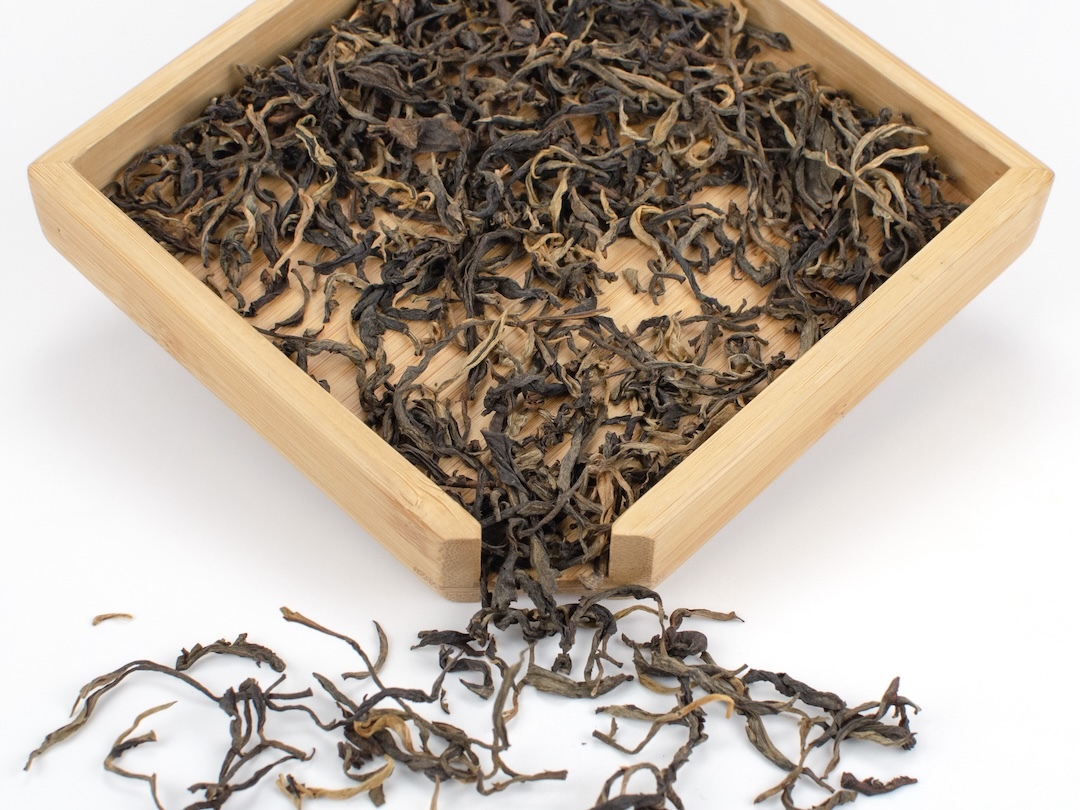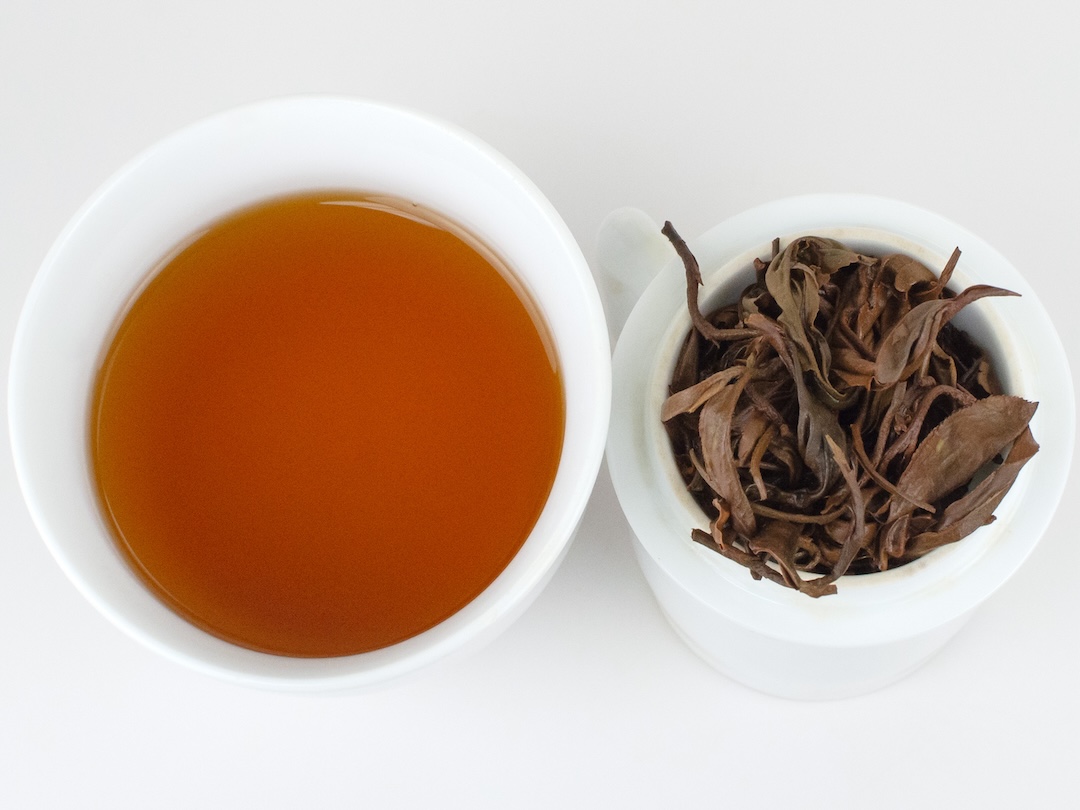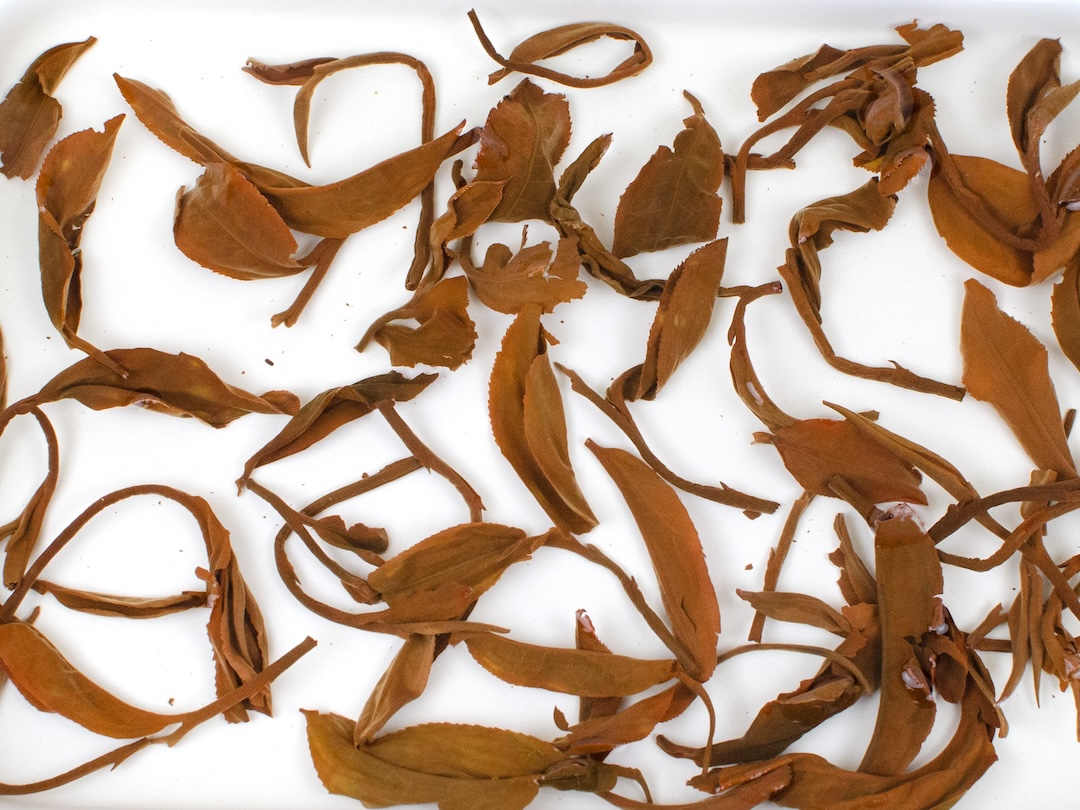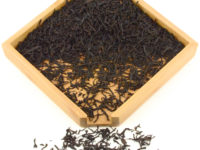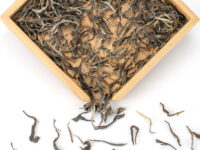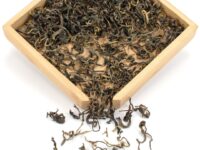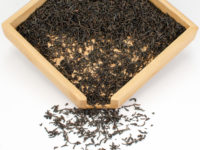Baotang Pond Sun-Dried
Black Tea 2024
A molasses-sweet sun-dried Yunnan black tea made from old-growth tea trees grown near Baotang Pond. Notes of jackfruit, toasted grain, and a touch of malt. Smooth full body and minimal tannins.
$25.00
- Tea Origin
- Naka Village, Mengsong Township, Menghai County, Xishuangbanna, Yunnan Province, China
- Tea Bush
- Yunnan Dayezhong (Yunnan Large Leaf Heirloom Tea Tree)
- Tea Maker
- Gong Liping and Ran Yijun
- Harvest Time
- Late March
- Plucking Standard
- One bud, two leaves
Like many sun-dried black teas from Yunnan, this tea comes from a region that traditionally uses this leaf to make sheng puer. Baotang Village rests high in the mountains at 1700-1800 meters above sea level in eastern Menghai County bordering Xishuangbanna. This settlement faces the famous puer origin Nannuo Mountain. The vigorous tea trees in the Baotang area tend to have plump, wide leaves with full-bodied flavor and a rich nectar fragrance.
Baotang Pond Village Micro-Origin
This remote origin was named after Baotang Pond, a precious local resource that provides water for its people and the tea plants that are their livelihood, especially during Yunnan’s long drought. In total, only about 100 families live in Baotang in two small settlements, Laozhai and Xinzhai. Laozhai’s inhabitants mostly belong to the local Lahu ethnic minority. Surprisingly, the Xinzhai settlement is mostly inhabited by people from the Han ethnic majority, the descendants of migrants who moved there in the Qing Dynasty over 100 years ago for the tea trade.
The rural communities in the mountains of Yunnan have a long custom of growing tea, both for their own use as an herbal remedy and a source of nutrients, as well as a crop to trade for goods. Since tea is so valuable, they have a long custom of planting tea seeds every spring to help encourage the forest to keep growing and producing excellent tea. Over time, the tea gardens around Baotang have accumulated many old-growth tea trees that are multiple centuries old, all mixed in with younger trees of all ages. The variety of ages in the tea tree population creates remarkable depth and complexity in tea made from their leaves.
Making Yunnan Sun-Dried Black Teas
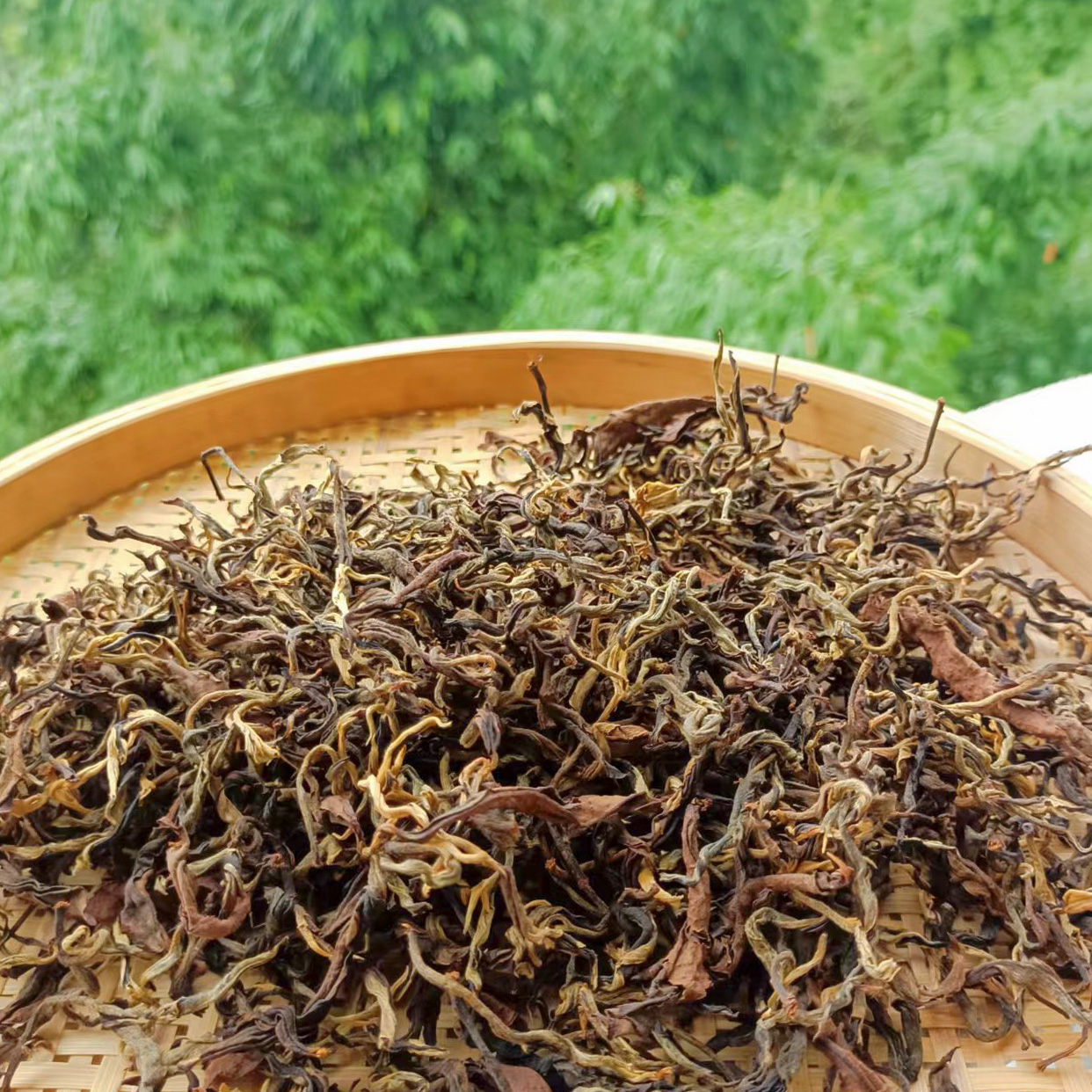
As the name suggests, Yunnan sun-dried black teas (sometimes called “sun-red”) mainly differ from traditional black teas in their drying. Instead of using an oven to quickly dry the tea after oxidation, the darkened leaves are spread thin to dry in the sun, often in a covered solarium. In the subtropical heat of Yunnan’s climate, the drying process only takes a day.
Sun-dried black tea processing is actually quite similar to the way sheng puer tea is made in Yunnan. The only difference is the extra oxidation step that all black teas go through. Unlike sheng puer and green teas, black tea is not fried to deactivate the enzymes that cause oxidation. After the fresh leaves are withered and kneaded into long twists, the tea makers gather the tea into breathable bamboo baskets and let the moist leaves darken overnight. By the time they spread the tea out in thin layers to dry in the hot noon sun the next day, the leaves have oxidized and turned “black.”
The resulting black tea has some characteristics in common with the sheng puer tea and Yunnan white tea that also originated in this province. It possesses the depth and complexity of a sheng puer with a hint of its greenness, the rich smoothness of a Yunnan white tea, as well as the rich floral, fruit, and sweet honey notes characteristic of black tea.
To try sun-dried black teas from different Yunnan origins made by the same-method, try our Youle Sun-Dried black tea from Youle Mountain.
No chemical fertilizer, pesticide, or herbicide was used in the production of this tea. Click here to read more about our promise to fair trade and the environment.

